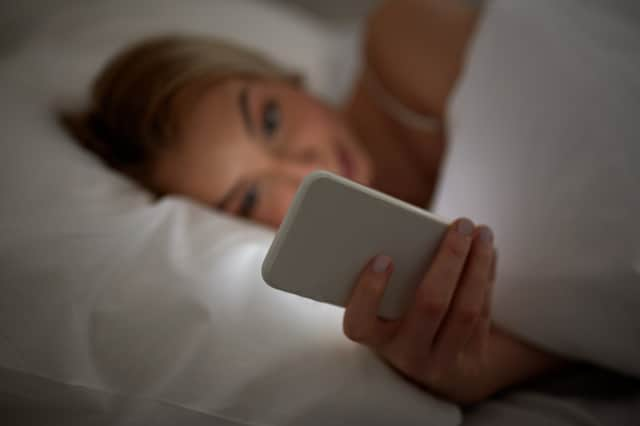Poor sleep can lead to mental health problems, new research suggests


Sleep problems can trigger a series of mental health issues, warns a new study.
A new review of recent research evidence shows that trouble sleeping can cause or worsen a range of serious psychiatric disorders.
Advertisement
Hide AdAdvertisement
Hide AdThe review, published in the journal Proceedings of the National Academy of Sciences (PNAS), suggests gaining a better understanding of the relationship between sleep, the internal body clock - known as circadian rhythms - and mental health could unlock new holistic treatments.
Senior author Dr Sarah Chellappa, from the University of Southampton, said: "Sleep-circadian disturbances are the rule, rather than the exception, across every category of psychiatric disorders. Sleep disturbances, such as insomnia, are well understood in the development and maintenance of psychiatric disorders, but our understanding of circadian disturbances lags behind.
"It is important to understand how these factors interact so we can develop and apply sleep-circadian interventions that benefit the sleep and mental health symptoms of patients."
An international team of researchers from the University of Southampton, Kings College London, Stanford University in the US and other institutions explored recent evidence on sleep and circadian factors, focusing on teenagers and young adults with psychiatric disorders. That is the time in life when people are most at risk of developing mental health disorders and when disruption to sleep and circadian rhythms are likely to occur.
Advertisement
Hide AdAdvertisement
Hide AdThe researchers found that insomnia is more common in people with mental health disorders than in the general population - during remission, acute episodes and especially in early psychosis, where difficulty falling and staying asleep affects more than half of patients.
Around a quarter to a third of people with mood disorders have both insomnia and hypersomnia, where patients find it hard to sleep at night, but are sleepier in the daytime. Similar proportions of people with psychosis experience the same combination of sleep disorders.
The few studies looking at circadian rhythm sleep-wake disorders (CRSWD) suggest that 32 per cent of patients with bipolar disorder go to sleep and wake later than usual, a condition known as Delayed Sleep-Wake Phase Disorder. Body clock processes have been reported to run seven hours ahead during manic episodes and four to five hours behind during the depressive phase.
During adolescence, physiological changes in how we sleep combine with behavioural changes - such as staying up later, getting less sleep on school nights and sleeping in on weekends.
Advertisement
Hide AdAdvertisement
Hide AdReview co-leader Dr Nicholas Meyer, of King's College London, said: "This variability in the duration and timing of sleep can lead to a misalignment between our body clock and our sleep-wake rhythms can increase the risk of sleep disturbances and adverse mental health outcomes."
Surveys show self-reported time outdoors was associated with a lower probability of mood disorder. Sleep is thought to play a key role in how the brain forms new neural connections and processes emotional memories.
Dr Chellappa added: "Collectively, research into mental health is poised to take advantage of extraordinary advances in sleep and circadian science and translate these into improved understanding and treatment of psychiatric disorders."
Comment Guidelines
National World encourages reader discussion on our stories. User feedback, insights and back-and-forth exchanges add a rich layer of context to reporting. Please review our Community Guidelines before commenting.
